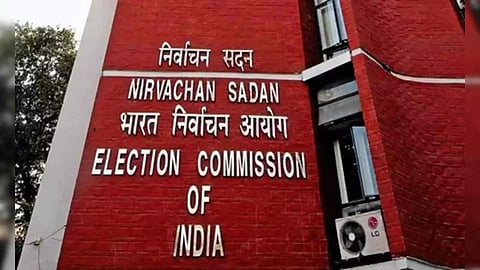

In what appears to be a shocking reflection of the indifference exhibited by the youth when it comes to participating in the democratic process, less than 40% of India’ youngest voters (18-19-year-olds) have registered to vote in the 2024 elections. According to data released by the Election Commission, with less than 25% of the youth enrolling to vote, a few states including UP (23%), Delhi (21%), and Bihar (17%) have set dismal records on the share of registered new young voters.
There are a total of 96.8 crore eligible voters for this year’s general elections. India has around 1.8 crore new voters (in the 18-19 age group) on the electoral rolls, as per EC records. The population of India’s youth in the 18-19 age group is a little under 4.9 crore, which implies just 38% of these first time voters made it to the electoral rolls. Only three states — Telangana (67%), Jammu and Kashmir (62%) and Himachal Pradesh (60%) managed to make some dent in the registration of new young voters, breaching the 60% threshold.
Even in south Indian states, known for its politically astute and highly opinionated youth, the administrations seem to be struggling to onboard teenagers onto the poll bandwagon. Karnataka (53%), Tamil Nadu tied with Andhra Pradesh (50%), and Kerala (38%) are states with a sub-50% youth enrolment in the 18-19 group. The irony is that youngsters with their entire lives ahead of them, and possibly the maximum stake in the outcome of these elections, have displayed such disregard in being a part of India’s electoral proceedings. Obviously, there’s a disconnect that all the road shows, sloganeering, welfare promises, and social media blitzkrieg is failing to arrest.
According to those employed on the field, and tasked with mobilising the aid of India’s rich demographic dividend for polling purposes, a slew of factors have contributed to voter apathy. General indifference coupled with the challenges in processing paperwork have been zeroed in as one of the causes for the low registration. One of the much touted reasons for the low enrolment ratio is the factor of urban migration of students, white and blue collar workers. As opposed to carrying out voter awareness campaigns just a few months before the elections, a concerted initiative must be rolled out and sustained throughout the voting year, which could possibly help raise the voter enrolment.
One must consider the aspect of cynicism that has crept into young Indians who are bemoaning the fact that the top leadership of all major parties is populated by senior citizens and devoid of dynamic young candidates — both women and men, who the youth can relate to. The shortage of pedagogical attention paid to the electoral processes as well as politics in the school syllabus has also been cited as a reason for indifference to the elections. Thousands of students are eyeing a one-way ticket out of India as soon as their Bachelors is completed.
There is a sense of resignation vis-a-vis the state of affairs — unemployment, poverty, inequality, religious divisiveness and poor human indices across the board. Many youngsters and veterans believe the system has been rigged, and that money and muscle power will dictate the outcome of the elections as opposed to a free and fair act of casting one’s ballot, that could be viewed as the people’s mandate. The question to be asked is, can you blame them if they choose to steer clear of the polling booths?